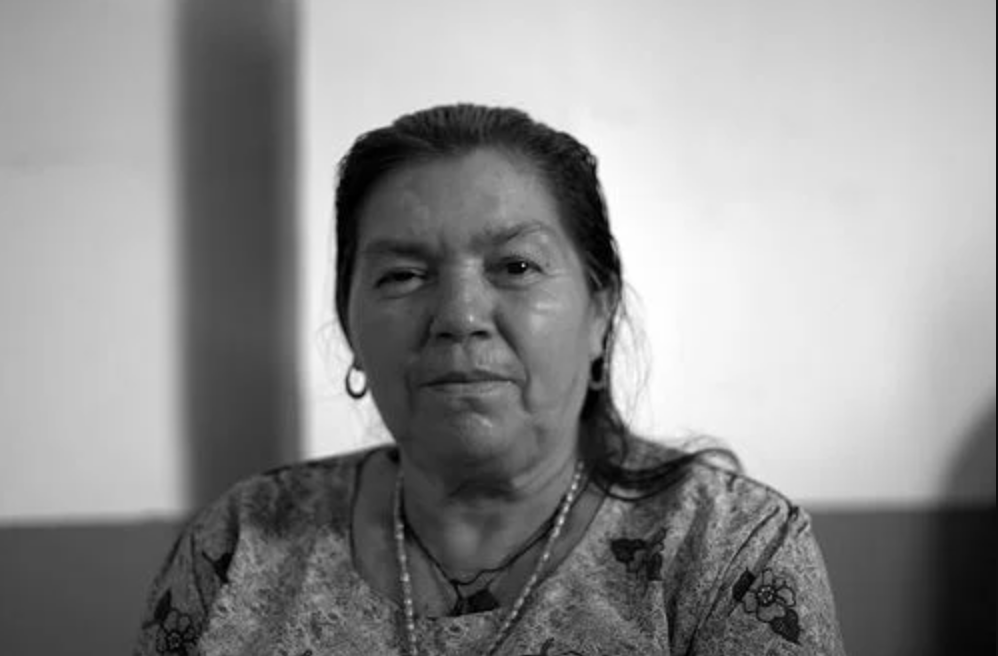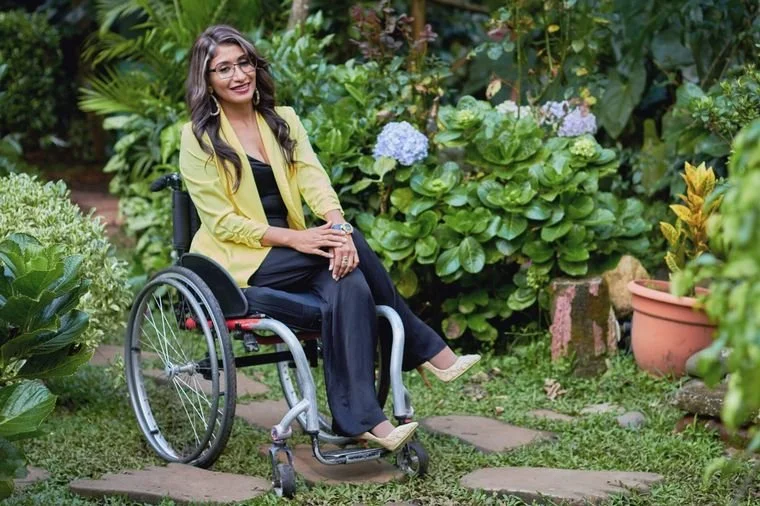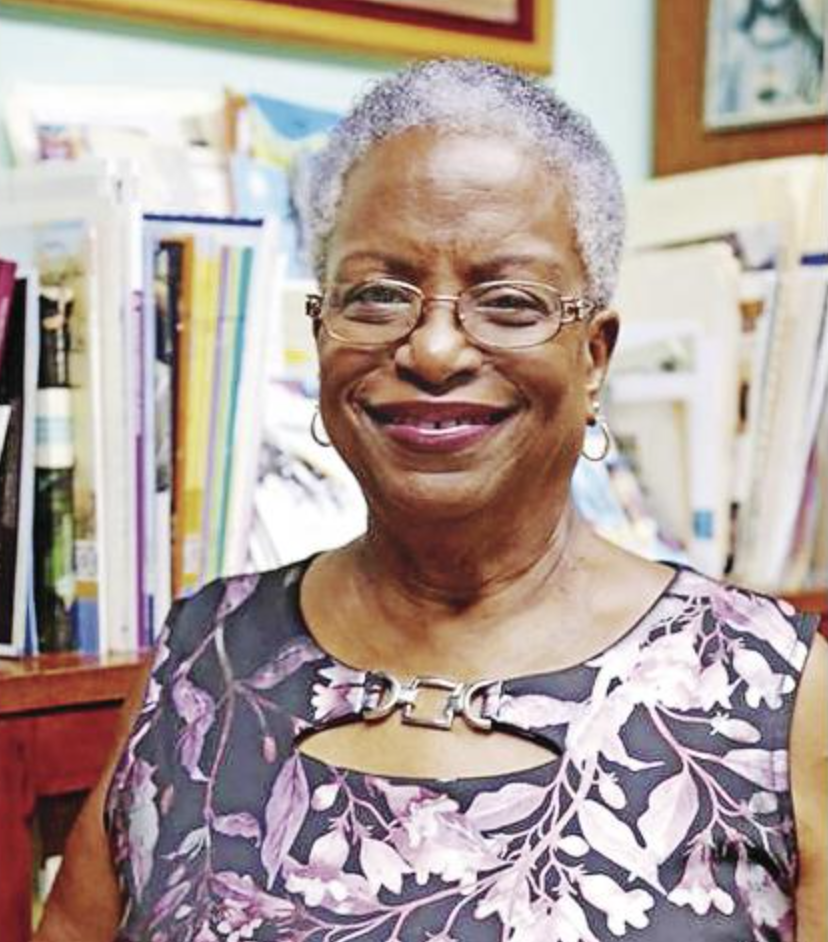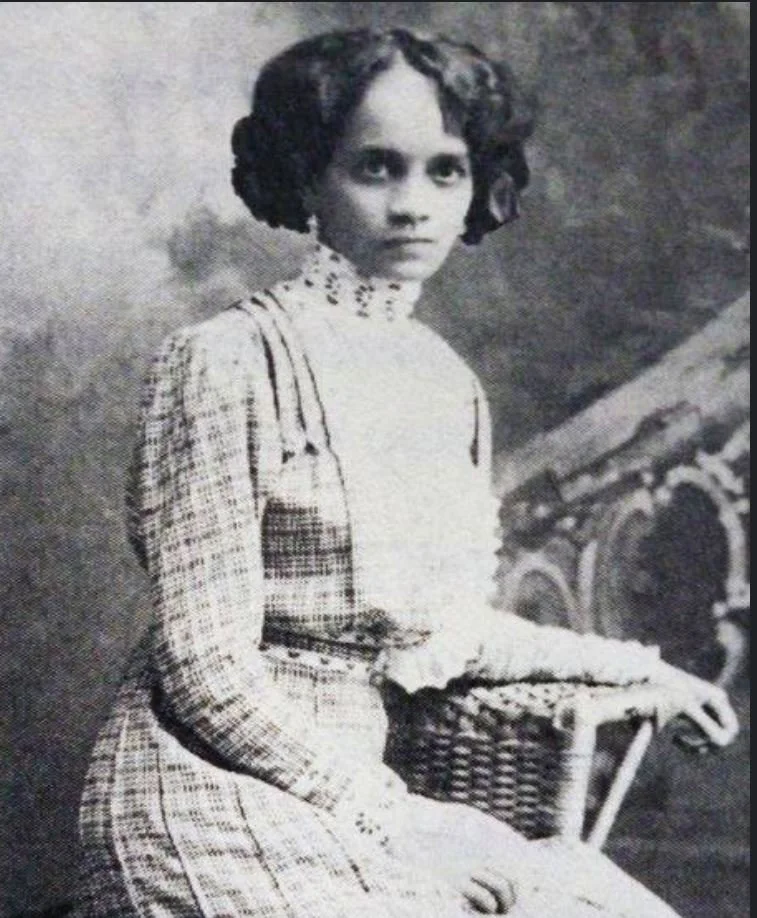#8M: 9 Central American Women That Inspire Our Liberation Struggle
International Women’s Day falls every year on March 8th, which organizations around the continent honor every day with actions, protests, and education with the hashtag #8M. Largely ignored in mainstream media, Central American women, particularly Black, Indigenous, low-income, campesina women, have been paving and continue to pave the way for communal and regional liberation in different ways. Today, I look to these women who are pioneers not only for feminist movements, but for intersectional, decolonial, antiimperialist, humanist movements.
Miriam Miranda
Miriam Miranda is the General Coordinator of Organización Fraternal Negra Hondureña (OFRANEH) and the Platform of Social and Popular Movements of Honduras, which she co-founded with Berta Cáceres. She also serves at the National Coordination for the Indigenous and Black Women of Honduras. Her activism has led her to be internationally-renown for her defense of the cultural and territorial rights of the Garífuna peoples for over 30 years.
She was born in Santa Fe, Colón, a coastal Garífuna community in Honduras. When Miriam was a child, she and her family left the village in search of better work and schooling opportunities, traveling to various banana plantations.
She studied at a university in the country’s capital, Tegucigalpa. During her time as a student, Miriam learned about social movements that particularly supported the rights of low-income and Indigenous women in Honduras. She eventually began to focus on advocating for the rights of Garífuna people.
During her career, Miriam has been threatened and kidnapped in retaliation for her work, and has been publicly portrayed as a criminal in local news media. The most recent incident was in January 2017 in Ceiba, where she and three other Garífuna community leaders were arrested and illegally detained by, in spite of the fact that Honduras authorities had been ordered by the Inter-American Court of Human Rights to provide police protection for Miriam. Despite these intimidation tactics directed towards her and her community, she continues to publicly demand protections and justice for Garífuna communites.
Furthermore, Miriam has emphasized the significant role of women as community and cultural heritage defenders: "I want to talk about the role of women defending life, culture, and territories, opposing a model of death that grows stronger each day. We are at the front of the avalanche of attacks. Everywhere throughout Honduras, like in all of Latin America, Africa, Asia, women are at the forefront of the struggles for our rights, against racial discrimination, for the defense of our commons and our survival. We're at the front not only with our bodies but also with our force, our ideas, our proposals. We don't only birth children, but ideas and actions as well.”
Berta Cáceres
Berta Cáceres was an Indigenous Lenca environmental activist in Honduras, and co-founder and coordinator of the Consejo Cívico de Organizaciones Populares e Indígenas de Honduras (COPINH). She led campaigns on several issues, including protesting illegal logging, plantation owners, and the presence of US military bases on Lenca land. She once took a case to the Inter-American Commission on Human Rights regarding hydroelectric dam developers that were planning on Lenca land without consulting them, breaching international law. This years-long campaign against this dam consisted of protesters being shot at, killed, political arrests, detainment, charges, death threats, state harassment, and more. During her career, she cultivated close relationships with Zapatista organizers and anti-hierarchical Indigenous movements throughout the Americas, as well as her collaborations with non-Indigenous-identified anarchist-leaning organizers. This was evident in her layered anti-capitalist, feminist, decolonial analysis of Honduras: “This whole project of domination has been consolidated in Honduras,” and she specified that “the concept of power created from within capitalism…is very patriarchal and racist in its form of domination.”
3 out of 8 arrested in connection to her murder had connections to US-trained elite military troops, including 2 of them being trained at the former School of the Americas, the training grounds for Central American death squads during the 70s and 80s and linked to thousands of murders and human rights violations in Latin America by its graduates.
Twelve environmental activists were killed in Honduras in 2014, according to research by Global Witness, and it still is one of the most dangerous country in the world. Her daughter Bertha Zúñiga Cáceres continues her struggle in the same role her mother occupied and calls for accountability from the state in her mother’s murder. She herself has survived attempts on her life since.
In a 2015 interview she gave less than a year before her assassination, she explained the worsening state of human rights in Central America: “I believe things have actually gotten worse since the 80s. Even though there was an armed conflict in Central America, there were certain norms that were still respected. But today, the level of impunity –if we compare it with that era– the level of impunity, of social injustice, of denying the right, for example, to land. The concentration of lands, of territories, the plunder, in comparison with what was happening in the 80s; today it’s done in a way that is shameless and the institutions, the laws, the system of justice that is carried out in this country only exists to support that process, not to support the peoples [of Honduras]. So for me, what they call democracy here, which is actually something else, has gotten worse.”
Prudencia Ayala
Prudencia Ayala was a Salvadoran writer, social activist, and pioneer campaigner for women's rights in El Salvador and the first woman to run for president in El Salvador and Latin America. She was born in 1885 in the department of Sonsonate to a working-class Indigenous family. At age 12, she began to be known for her prophecies and Santa Ana newspapers began to publish them; they gained traction when she predicted in 1914 the fall of the German Kaiser and the United States’ involvement in World War I.
She was active in movements of anti-imperialism, feminism, and Central American reunification. She also protested the United States' invasion in Nicaragua.
Prudencia published poems in many newspapers throughout the country. In 1919 she was put in jail for the criticism in one of her columns of the mayor of Atiquizaya and while in Guatemala, she was put in jail for many months for accusations of collaborating with the planning of coup of state due to her criticism of dictator Manuel Estrada Cabrera. In 1921, she published her book Adventures of a trip to Guatemala, in which she narrated her trip to Guatemala during the last months under the dictatorship of Manuel Estrada Cabrera. In addition, she published the books Immortal, Amores de Loca and Fumada Mota. During the final of the 1920s, she founded and ran the newspaper Rendencion Femenina.
Prudencia attempted to run for president in 1930, which was rejected by the Supreme Court, but the debate that followed sparked the feminist movement that permitted the women's suffrage movement to grow. In 1950, women's rights in El Salvador were recognized by the Constitution.
In an editorial published in El Heraldo Femenino in 1950, she wrote: “No se puede concebir una sola razón jurídica que postergue a un ser humano en el ejercicio de tales derechos (derechos civiles y políticos), tomando como único fundamento la diferencia de sexos. Por eso venimos a pedir, no que se nos conceda por vía de gracia la plenitud de nuestros derechos, sino el reconocimiento expreso de los que tenemos por razón natural y que nos garanticen su ejercicio.”
Elfreda Reyes
Elfreda Reyes was a labor organizer, suffragette, women's rights activist, and political activist during the British Honduran (now Belize) struggle for independence from Great Britain. She helped found the Jobless Workers Union and pushed for labor reforms, including wage and hour laws, as well as the Women’s League, which fought for social, economic and political empowerment of women, particularly for affordable child care.
She is known in Belize as a “Bembe woman,” which refers to primarily working-class women who are unafraid to fight and refuse to be defined by moralists because they see themselves as engaged in a justifiable fight for their rights or nationhood. The word Bembe is a West African practice and colloquially, it may be used negatively to describe an aggressive woman.
Elfreda was born in 1901 in British Honduras to Creole, Bajan immigrants. By 1919 she was working as a domestic servant for a white British family. During her career, she led the first sustained popular mobilization for labor rights in Belize, championed gender-inclusive citizenship and maternal and infant health care, organized a national campaign to secure minimum wage and to include the protection of the rights of working women in the constitution. She was a member of the Women's League, Deputy Party Leader of a major political party, founding member of the Jobless Workers Factory and the Labourers and Unemployed Association, member of the People's United Party and National Party.
Rufina Amaya
Rufina Amaya was the sole survivor of the El Mozote massacre on December 1981. Her testimony of the attacks was instrumental in the eventual investigation by the United Nations Commission on the Truth for El Salvador after the end of the war. The investigation led to the November 1992 exhumation of bodies buried at the site and the commission's conclusion that Rufina’s testimony had accurately represented the events.
She described the way in which U.S.-trained Salvadoran elite forces brutalized and massacred the population in groups, such as men, women, the elderly, and finally, minors. While her husband and 4 children (aged 9 years, 5 years, 3 years, and 8 months old respectively) were killed, she was able to hide. One of her children survived only because she was not in the village at the time and visiting family in another town.
As she hid for 8 days, she swore to herself that if she survived, she would tell the story of what happened in El Mozoté.
Following the massacre, Rufina became a refugee. She hid between the border of El Salvador and Honduras as she cooked for guerillas. At the end of the war, she sought refuge in Honduras. She returned to El Salvador in 1990 and by March 2000, Rufina was living near the Morazán village of Segundo Montes, established by repatriated exiles in memory of a Jesuit priest and scholar killed during the war in a mass assassination of priests by government forces at the Universidad Centroamericana José Simeón Cañas (UCA).
Unfortunately, her only surviving daughter from her second marriage has since sought asylum in the United States as she has been targeted and extortion as she continues to share her mother’s story.
Wendy Caishpal
Wendy Caishpal is a Salvadoran human rights activist for people with disabilities and the founder and director of Ahuachapán Sin Barreras, a municipally-adopted project that promotes and protects the rights of disabled people in Ahuachapán.
Wendy was born and raised in Ahuachapán. At the age of 14, she was in a car with her cousin selling bread. As she exited the vehicle to make a sale to a woman, a group of gang members ran up and shot her cousin in the head, killing him. She was shot five times in the leg, back, and arm. After she was taken to the hospital, she remained in a coma for fourteen days. She awoke to learn that she had a spinal cord injury and was permanently paralyzed from the waist down. As a result of the incident, Wendy started using a wheelchair.
She endured a long rehabilitation process, and she described how the disability organization Red de Sobrevivientes gave her opportunities for rehabilitation and personal development, as well as educating her on her rights as a disabled person, facilitating her self-acceptance as a disabled person.
Wendy initially studied international relations at the University of El Salvador, but a lack of facilities for disabled students forced her to drop out; she described that she was not yet ready to fight for her rights at this point. She began to study law, where she once again encountered a lack of infrastructure for disabled people, inspiring her to found Ahuachapán Sin Barreras.
Ahuachapán Sin Barreras has taken an active role in the design and planning of two local parks to ensure they were accessible to disabled people, as well as planning swimming pool events with disabled children in mind. Wendy also provides free legal advice to educate disabled people about their rights, particularly with regards to their health. In her eyes, her work isn't just about physical barriers, but also about helping the disabled population to overcome the architectural, environmental and attitudinal barriers they face as well. As she describes her goals, she explains: “Lo que yo visualizo es que Ahuachapán esté libre de barreras arquitectónicas, del entorno y también actitudinales. A la gente le cuesta, siempre he dicho que como no le afecta, no se involucra (pero) juntos podríamos avanzar más… Para nadie es un secreto que la población con discapacidad es un sector vulnerable y además olvidado.”
Melva Lowe de Goodin
Melva Lowe de Goodin is a Black Panamanian academic who, inspired by the ignorance she experienced and observed of Black Panamanians, has been part of the Black movement in Panama and fundamental to telling the histories of Black Panamanians. She was born in 1945 in Red Tank, a town in the Panama Canal Zone to a first-generation Panamanian couple. Her grandparents immigrated from Jamaica as laborers to build the canal and lived in the zone designated for Caribbean immigrants. Around 1956, the family moved to Paraíso, where she studied at the Panama Canal Company schools, before moving to the United States to study at the Connecticut College for Women. After graduating with her bachelor's degree in 1968, she went on to complete a master's degree in English at the University of Wisconsin–Madison in 1970.
After completing her graduate studies, Professor Lowe de Goodin took a post to teach at the University of Zambia in Lusaka. The university was in need of teachers and she believed that the experience would give her insight into the struggles of African people. After teaching in Zambia, she returned to Panama and was hired as a professor of English and Literature at the University of Panama. In 1974, she was hired to design the English as a second language course for Florida State University-Panama and served as coordinator of the program for more than twenty years, while simultaneously teaching at the University of Panama.
Frustrated by the lack of inclusion in history texts of the African heritage in Panama, Professor Lowe de Goodin became involved in the emerging Black movement in Panama along with others. They organized an anthropological conference to discuss how they could preserve the contributions of the African diaspora in Panama. In 1980, the activists opened the Afro-Antillean Museum but had to close it by the end of the year due to insufficient funds. Hosting fairs and events to raise awareness of Black history among the Black population, the group developed a network.
In 1981, she founded the La Sociedad de Amigos del Museo Afroantillano de Panamá (SAMAAP), to raise funds and preserve the cultural and literary heritage of Afro-Panamanians. She became the inaugural president and served through 1984. She was re-elected president of SAMAAP in 1998 and served a two-year term. In 1985, Professor Lowe de Goodin wrote a play, De Barbados a Panamá (From Barbados to Panama), to tell the story of the Caribbean migrants who came to work on the Panama canal. In this way, she corrected the mainstream Panamanian historical narrative, challenging both the omission of Afro-Caribbeans and the myths, like they all immigrated from Jamaica and were impervious to disease.
She has also written Afrodescendientes en el Istmo de Panamá 1501–2012 (People of African ancestry in Panama, 1501–2012). The English edition of her book was released on the centennial of the construction of the Panama Canal.
Carmen Lyra (María Isabel Carvajal Quesada)
Carmen Lyra, who used the pseudonym María Isabel Carvajal Quesada, was the founder of the country's first Montessori school and a co-founder of the Communist Party of Costa Rica and of one of the country's first female worker's unions. She was also one of the earliest writers to criticize the dominance of the fruit companies.
Carmen was born on 15 January 1888 in San José, Costa Rica.
In 1918, she published her first novel En una silla de ruedas. In 1919, during a teacher's protest against the dictatorship of Federico Tinoco Granados, she galvanized the crowd and in their anger, they burned La Información, the official newspaper of the Costa Rican government. Around this time, she began to study antiimperialist theory. When the dictatorship fell, Carmen was offered a scholarship to study abroad at the Sorbonne, in Paris, and at schools in Italy and England, where she learned about Montessori teaching.
In 1926, Carmen founded and directed the first Montessori pre-kindergarten, teaching the poorest students of San José. She introduced hygiene courses and introduced the practice of feeding children, from which school lunchrooms derived from. Carmen's home became a gathering place for intellectuals and writers and she became increasingly leftist.
In 1931, she and Manuel Mora Valverde founded the Costa Rican Communist Party. She was joined by fellow teachers who had been radicalized to challenge a society built on privilege and the roles of women being confined to home, marriage, and motherhood. She became increasingly critical of Costa Rica’s move towards nationalism, which led to conflicts with neighboring Central American countries. She coined the phrase “the cult of the flag” and railed against it, fighting with all her might against teaching nationalism in education. That same year, Carmen and Luisa González formed the Unique Union of Women Workers. Furthermore, in this same year, she published Bananos y Hombres, anticipating the actual 1934 banana workers' strike organized by the communist party and in which she would have a significant role.
By the beginning of 1940, she established the Popular University at her house, where lectures and conferences would be hosted in addition to loaning and selling book. As her politics and activities became more radical, Carmen was removed from her teaching posts and in 1948, at the conclusion of the Costa Rican Civil War, when José Figueres Ferrer outlawed the communist party, she was sent into exile in Mexico. Despite desperate pleas to be allowed to return due to illness, Carmen died in Mexico City on May 14th, 1949 and her body was flown to Costa Rica and she was buried in San Jose.
In 1962 the Board of Education of Cóbano, named a school in her honor and the Costa Rica Legislative Assembly awarded her the honor of Benemérita de la Cultura Nacional in 1976. Camren was inducted into La Galería de las Mujeres de Costa Rica (The Costa Rican Gallery of Women) in 2005. As of 2010 Carmen Lyra is depicted on the twenty thousand colon bill.
She once noted capitalism’s role in influencing her thinking in Periódico Trabajo:
“Communism is not anyone’s invention, it is a consequence of the abuses of capitalism. If communism is exotic in Costa Rica, capitalism, which is its father, is also exotic.”
Rigoberta Menchú
Rigoberta Menchú is a K’iche’ Maya peace and Indigenous human rights activist in Guatemala who rose to prominence for her work visibilizing the genocide against Indigenous peoples during the decades-long Guatemala Civil War. She was born to a low-income K'iche' Maya descent in Laj Chimel, a rural area in El Quiché. Rigoberta’s mother was a midwife and practiced using traditional medicinal plants. Her father was a prominent activist for the rights of Indigenous farmers in Guatemala.
From a young age, she was active alongside her father, advocating for the rights of Indigenous farmers through the Committee for Peasant Unity. She would often be involved in social justice movements. Rigoberta often faced discrimination for wanting to join her male family members in the fight for justice, but she was inspired by her mother to continue making space for herself. After leaving school, she worked as an activist campaigning against human rights violations committed by the Guatemalan armed forces.
Rigoberta lost much of her family during the Guatemalan civil war. In 1979-80 her brother and her mother were kidnapped, brutally tortured and murdered by the Guatemalan army. Her father died in the state’s 1980 burning of the Spanish Embassy. In 1981, Rigoberta was exiled and escaped to Mexico where she found refuge in the home of a Catholic bishop in Chiapas. She continued to organize resistance to oppression in Guatemala and organize the struggle for Indigenous rights by co-founding the United Republic of Guatemalan Opposition. In 1984, her other brother was shot to death by the Guatemalan army.
In 1982, she narrated a book about her life, titled Me llamo Rigoberta Menchú y así me nació la conciencia (My Name is Rigoberta Menchú, and This is How My Awareness was Born), to Venezuelan author and anthropologist Elizabeth Burgos, which was translated into five other languages including English and French. She narrated the book in Spanish, although she had only learned to speak it three years prior. The book made her the face of the ongoing conflict in Guatemala and brought attention to the suffering of Indigenous peoples under the dictatorships in Guatemala. In 1992, Rigoberta became the first Indigenous woman to win the Nobel Peace Prize and she founded Fundación Vicente Menchú with the money she received, the goal of which is to strengthen human values to construct global peace with a diversity of ethnicities, polities, and cultures.
After the Guatemalan Civil War ended, Rigoberta campaigned to have Guatemalan political and military establishment members tried in Spanish courts. In 1999, she filed a complaint before a court in Spain because prosecutions of civil-war era crimes in Guatemala was practically impossible; while these attempts stalled, in 2006, Spain called for the extradition from Guatemala of seven former members of Guatemala's government, including Efraín Ríos Montt and Óscar Mejía, on charges of genocide and torture.
In 2006, Rigoberta was one of the founders of the Nobel Women's Initiative, whose goal is to help strengthen women's rights around the world.
On 12 February 2007, she announced that she would form an Indigenous political party called Encuentro por Guatemala and that she would stand in the 2007 presidential election. Although she didn’t win, she was the first Maya, Indigenous woman to ever run in a Guatemalan election. In 2009, she became involved in the newly founded party Winaq and was a candidate for the 2011 presidential election, which she lost again. Although Rigoberta was not elected, Winaq succeeded in becoming the first Indigenous political party of Guatemala.








